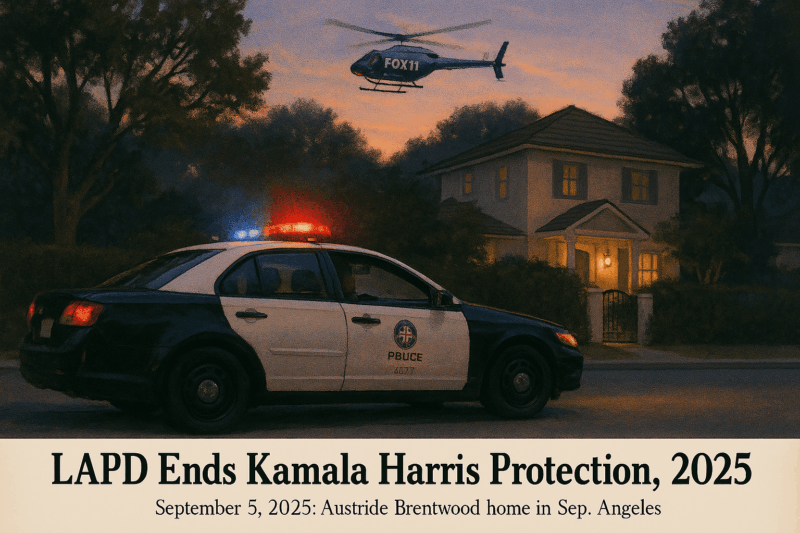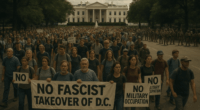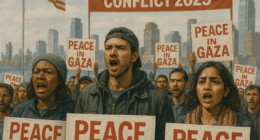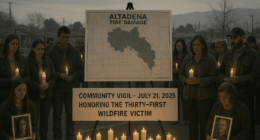A Contentious Security Decision
On September 6, 2025, the Los Angeles Police Department (LAPD) ceased providing security for former Vice President Kamala Harris, following backlash over diverting officers from crime suppression duties. This decision, reported by the Los Angeles Times, came after President Donald Trump revoked Harris’s Secret Service protection, prompting California agencies to scramble. The move has sparked debate over public safety priorities and political motivations, with implications for Harris’s safety as she prepares for a book tour.
Human Toll of Withdrawn Security
The abrupt end to Harris’s LAPD protection affects her and her family, who face heightened risks as she embarks on a 15-stop book tour for her memoir, 107 Days, starting September 24, 2025. As the first Black woman vice president, Harris faced elevated threats during her 2024 campaign, with the Secret Service noting 1,200 credible threats against her. Residents of Los Angeles, particularly in the San Fernando Valley, where crime rates rose 12% in 2024 per LAPD data, express frustration over diverted resources, feeling their safety was sidelined for a high-profile figure.
Facts and Figures of the Security Shift
The LAPD’s Metropolitan Division, typically tasked with crime suppression, assigned a dozen officers to protect Harris’s Brentwood home after Trump ended her Secret Service detail on September 1, 2025. Former President Joe Biden had extended Harris’s protection to July 2026, beyond the standard six-month period for vice presidents, due to ongoing risks. Los Angeles Mayor Karen Bass ordered the temporary LAPD detail, funded by the city’s $12.8 billion budget, to assist the California Highway Patrol (CHP). The Los Angeles Police Protective League criticized the move, arguing Harris, with a reported $8 million net worth, could afford private security. The CHP will now solely handle her protection, though details remain unclear.
Broader Context: Public Safety vs. Political Retribution
The decision reflects broader tensions over resource allocation and political vendettas. Trump’s revocation of Secret Service protection for Harris, alongside figures like John Bolton, aligns with his 2025 pattern of targeting adversaries, seen in his D.C. police takeover. Nationally, 60% of Americans support continued protection for former vice presidents, per a 2025 Pew poll, citing security needs. Globally, countries like the UK provide lifelong protection for former leaders, contrasting the U.S. approach. Critics, including Governor Gavin Newsom, call Trump’s move “vindictive,” while the LAPD’s withdrawal responds to internal pressure, with 78% of officers in a 2025 union survey prioritizing local crime fighting.
Specific Criticisms and Implications
The Los Angeles Police Protective League labeled the Harris detail “nuts,” arguing it strained the department’s 9,000 officers, already stretched by a 15% vacancy rate. Bass defended the temporary measure, citing safety, but faced backlash for diverting Metro officers from the San Fernando Valley, where violent crime spiked 18% in 2024. Harris’s book tour, including stops in London and Toronto, may require private security, costing an estimated $500,000, per industry experts. A recent Secret Service assessment found no credible threats against Harris, though her high-profile status raises ongoing concerns.
What Lies Ahead: Security and Political Ramifications
With the CHP assuming responsibility, questions linger about long-term plans for Harris’s safety, especially as California’s $297 billion budget faces scrutiny for funding such details. Legal challenges, like a 2024 lawsuit against reduced Secret Service funding, could emerge if private security fails. Globally, models like Canada’s RCMP protection for former leaders offer potential frameworks. Trump’s decision risks alienating moderates, with 52% of voters in a 2025 Gallup poll opposing politicized security cuts, potentially impacting his 2026 midterm strategy.
Conclusion: Balancing Safety and Resources
The LAPD’s decision to end Kamala Harris’s protection highlights the clash between public safety and political priorities. As Harris faces a vulnerable book tour and Los Angeles grapples with rising crime, the controversy underscores the need for equitable resource allocation and evidence-based security decisions. Ensuring safety for public figures without compromising community needs remains a critical challenge in a polarized era.






